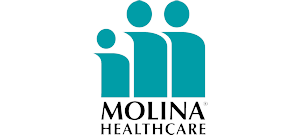At Supreme Recovery, we provide evidence-based addiction treatment services in Virginia designed to help individuals overcome substance use disorders and reclaim their lives. Our outpatient programs offer flexible, personalized care that allows clients to maintain their daily responsibilities while receiving the support they need for lasting recovery.

Benefits of Intensive Outpatient Addiction Treatment
- Flexible scheduling allows individuals to maintain employment, education, and family responsibilities while still receiving a high level of care and support.
- The structured nature of IOPs (which can include multiple therapy sessions per week) provides consistent reinforcement of coping mechanisms, relapse prevention strategies, and life skills development.
- Group therapy fosters a strong sense of community and peer support, reducing feelings of isolation and providing diverse perspectives on recovery.
- Integration of individual counseling and family involvement can help address the multifaceted nature of addiction and promote holistic healing.
Intensive yet flexible care can be particularly beneficial for those transitioning from residential treatment or those needing more support than traditional weekly outpatient therapy provides. This can ultimately increase the likelihood of sustained sobriety.

Recovery Begins Here
Therapy for Addiction
Individual therapy in addiction treatment provides a dedicated space for one-on-one counseling with a therapist. This personalized approach allows individuals to delve into the root causes of their addiction, explore underlying emotional issues, and develop tailored strategies for recovery. Through a strong therapeutic alliance, individuals can gain deeper self-awareness, process past traumas, and build healthier coping mechanisms to sustain long-term sobriety. Individual therapy offers a confidential and focused environment to address personal challenges and promote lasting change.
Group therapy for addiction offers a powerful avenue for peer-supported recovery within a safe and judgment-free environment. By bringing together individuals facing similar struggles, group therapy fosters a sense of community, helps reduce feelings of isolation, and provides diverse perspectives on the recovery journey. Participants can share their experiences, learn from others’ challenges and successes, and develop valuable interpersonal skills. Facilitated by a therapist, group sessions often focus on specific themes, coping strategies, and mutual support, creating a collective strength that can enhance individual recovery.
Family counseling in addiction treatment recognizes the significant impact of addiction on the entire family system. This modality aims to heal strained relationships, rebuild trust, and improve communication among family members affected by substance use. Through guided sessions, families can address enabling behaviors, establish healthy boundaries, and learn how to support the individual in recovery while also addressing their own emotional needs. Family counseling plays a crucial role in creating a stable and supportive home environment that fosters long-term healing for everyone involved.
Dual diagnosis treatment provides an integrated approach to care for individuals struggling with both addiction and co-occurring mental health disorders, such as depression, anxiety, or trauma. Recognizing the complex interplay between these conditions, dual diagnosis treatment combines therapies and interventions that address both the substance use and mental health symptoms simultaneously. This comprehensive approach ensures that individuals receive tailored support for all aspects of their well-being, leading to more effective and sustainable recovery outcomes by treating the whole person.

What We Treat
Characterized by a compulsive craving for and use of alcohol despite negative consequences, alcohol addiction can lead to significant health problems, relationship issues, and difficulties in daily functioning. The development of tolerance and withdrawal symptoms upon cessation are key indicators of this substance use disorder.
Heroin is a highly addictive opioid drug that can produce intense euphoria, quickly leading to dependence. Its use is associated with serious health risks, including infectious diseases and overdose, as well as significant social and economic consequences.
This involves the compulsive use of opioid medications (prescription or illicit) despite harmful consequences, driven by euphoric effects and/or the avoidance of withdrawal symptoms. Opioid addiction can develop rapidly and carries a high risk of overdose due to respiratory depression.
Fentanyl is an extremely potent synthetic opioid, making addiction develop quickly and carrying an exceptionally high risk of accidental overdose due to its strength. Even small amounts can be fatal, and dependence can form rapidly with regular use.
While often perceived as less harmful, marijuana can be addictive, with chronic users experiencing withdrawal symptoms like irritability, anxiety, and sleep disturbances upon cessation. Persistent use can also impact cognitive function, mental health, and social development in some individuals.
Cocaine is a powerful stimulant that produces intense but short-lived effects, leading to compulsive use and a cycle of craving and withdrawal. Addiction to cocaine can result in severe cardiovascular problems, neurological issues, and psychological distress.
Methamphetamine is a highly addictive stimulant that affects the central nervous system, leading to intense highs and a rapid development of tolerance and dependence. Chronic meth use can cause significant physical and psychological damage, including psychosis, aggression, and severe dental problems.


Contact Supreme Recovery
Ready to start your recovery journey? Our admissions team is available 24/7 to:
- Verify insurance coverage
- Schedule a free assessment
- Answer questions about our programs
Don’t wait — help is here. Contact us today.











